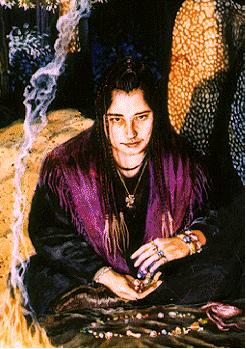Stroke First Aid
From Science News, Week of July 14, 2007; Vol. 172, No. 2
article: Brain Attack
Treatment with tPA saves many patientsas it did Anderson Holnessby opening obstructed blood vessels in their brains. But the drug has severe limitations. Doctors have to first do a computerized tomography scan to make sure that the person isn't experiencing a bleeding stroke, which tPA would make worse. And the clot-busting drug must be administered within 3 hours of the onset of a strokewhich isn't always possible because many delays occur on the way to emergency treatment. After 3 hours, the risk of bleeding outweighs the potential benefit of tPA, at least according to current medical judgment. The potential complications have made emergency room physicians reluctant to give tPA, says Costantino Iadecola, chief of the division of neurobiology at Weill Cornell Medical College in New York City.They've been looking, but the most promising treatments are having difficulties becoming approved, since they are combinations of drugs that don't nessessarily work well individually.
As a result, less than 5 percent of ischemic-stroke patients in the United States get treated with tPA. "Very few patients can benefit from the only treatment we have available for stroke," Iadecola says. "There is a tremendous interest to develop new treatments."
They are working on a promising combination right now: Irish Coffee, magnesium, and cooling the brain by 3 degrees C, which will slow many of the effects of the stroke.
James Grotta of the University of Texas in Houston combines cooling with an infusion of the equivalent of Irish coffee: caffeine and ethanol in a combination researchers call caffeinol. Caffeine, Grotta says, blocks dying cells' glutamate release, and ethanol blocks glutamate's action on surviving cells. Both compounds are cheap, their side effects are well-known, and they can easily enter the brain, he says.
In rats, a caffeinol infusion 2 to 3 hours after an induced stroke can reduce the brain area in which cells die by about 60 percent, compared with the area in animals receiving no treatment. If the regimen includes cooling the animals by 2°C, the area of dead cells is reduced by 80 percent. A person would have to get the equivalent of two cups of strong coffee and one cocktail to get a dose equivalent to what the animals received, Grotta says. He's currently testing the treatment's safety in people.
So, if you think that you've had a stroke, take magnesium with two cups of coffee, a stiff drink, and wrap a damp towel on your head and go straight to the hospital.
Oh yeah, and Medical Marijuana has been shown to guard against strokes, by lowering the blood pressure.
Wow, don't ya just love modern medicine?



0 Comments:
Post a Comment
<< Home